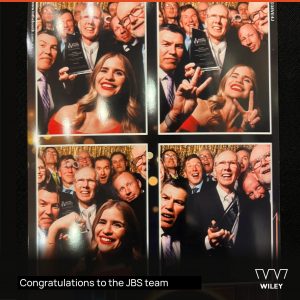The past five years have seen an explosion of new and innovative models and products to fund food processing facilities. While once the landscape was dominated by the traditional finance options (major banks), businesses can now access capital through a variety of new options. New funding sources include internet-based, peer-to-peer lending platforms, community ownership models, BOO (build, own, operate), BOOT (build, own, operate, transfer) and crowd-sourced campaigns for funding and equity. Crowd sourcing in particular has been an enabler to the recent explosion of small breweries in Australia. A new brewery is currently opening on average every six days in Australia and rapidly the industry has transformed from one dominated by a few multinational brands to one far more local and innovative.
Beyond these more novel approaches, the past few years have also seen the extension of equipment and process specialist providers “bundling” service solutions on a financed basis. These solutions may be constructed on-site via more traditional lease-type arrangements (such as rentals, lease-back, and rent-to-buy) with managed service agreements also becoming popular (particularly in the deployment of energy, refrigeration, logistics and water treatment).
These agreements tend to be characterised by zero up-front payments, with the value recouped by either regular payments or through some form of operational driver. Facilities are often offered on an off-balance sheet basis, reflecting the operational nature of the agreement.
The question often asked by Wiley clients is whether they should own their facility, or if it makes more sense to utilise these “off-balance sheet” solutions.
Bundled value solutions can offer financial value, however the growth in these products often blurs the ownership and operational control within processing facilities. When does outright ownership make sense and what do businesses need to consider when entering into an “off-balance sheet” solution?
Wiley has observed that, although there are many potential solutions, ultimately the decision is linked to the strategy of the business, operational requirements, financial objectives and the nature and importance of specific value adding activities within the facility.
The main drivers for businesses opting for “off-balance sheet” solutions are:
- Capital efficiency – utilising third party capital frees up internal capital for investment in activities that provide a better return and in some cases, provide capital that would otherwise be unavailable;
- balance sheet metrics –managed service agreements are traditionally performed on an “off-balance” basis, meaning they do not impact debt covenants and other financing products;
- leveraging economies of scale and expertise – bundling managed service agreements can provide access to specialty operators and expertise that would be otherwise difficult to maintain internally;
- obtaining accelerated tax benefits – it can be advantageous to utilise “off-balance sheet” solutions due to the different deductibility available; and
- focussing the business on “value-adding” activities – a facility often requires the provision of many ancillary services that, although important, are not central to value adding activities. This could include the provision of energy, water, waste processing or logistics services and infrastructure.
Where the main driver is to maintain balance sheet metrics (i.e. to keep agreements “off-balance sheet”), it is important to also understand that Australian Accounting standards are in the process of changing. Currently, operating leases are considered an “off-balance” sheet item the key change is to bring many of those agreements onto the balance sheet. Managed service agreements are an important exception, however it is important that whatever agreement entered into is “future-proofed” for the pending changes.
There is no easy solution and no one-size-fits-all-solution.
Each facility and business is unique and it is important that businesses seek advice from a professional to understand the best solution for them. Wiley provides business model consultation services, as well as a number of in-house finance solutions.



